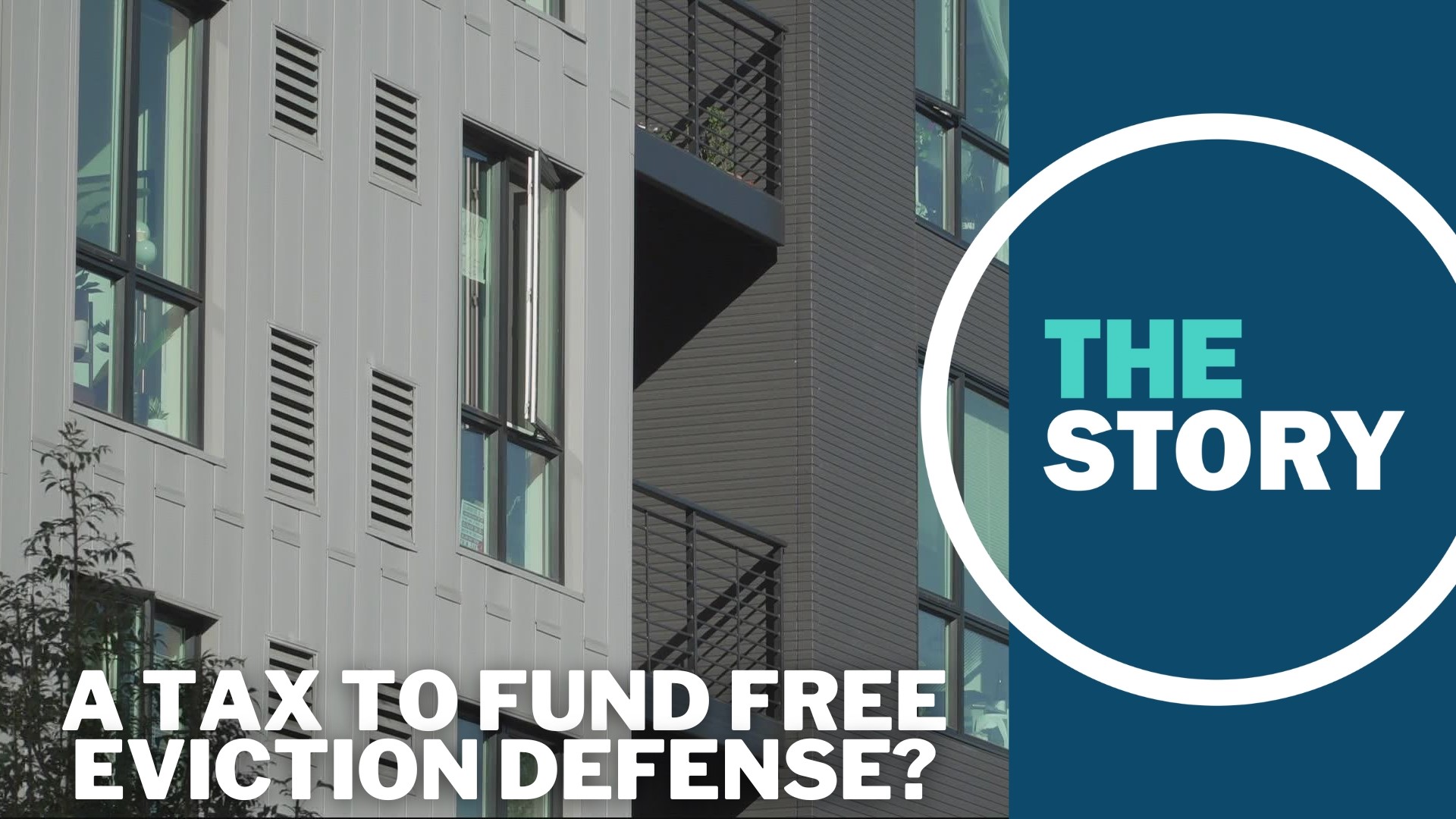PORTLAND, Ore. — Multnomah county voters will have a choice to make this May on a proposed new tax that would provide free legal representation for tenants facing eviction. Measure 26-238 would levy an adjustable countywide capital gains tax, initially set at 0.75%.
The proposal presents a crossroads in the housing crisis. Those pushing for the tax say it’ll help keep people in their homes, while those against it say it’s another tax pricing people out of the county.
The new tax would be in addition to the tax the federal government already collects, based on profits made from selling investments and capital assets — anything from stocks and real estate to mutual funds and cryptocurrency.
Proponents such as Eviction Representation for All hope the new tax will raise $12 million to $15 million per year.
"Unfortunately, eviction is one of the hardest things to come back from and leads to chronic homelessness," Eviction Representation for All volunteer Collen Carroll said. "These are important steps that allow people to stay in their homes and for us to reduce unnecessary evictions through supporting those tenants through whatever the issue is, but it's almost impossible for tenants to do that on their own."
Measure 26-238 has been in the works for about two years. Eviction Representation for All hoped to have it ready in time for the November 2022 ballot, but a legal challenge from the Portland Business Alliance slowed the process.
"We got involved because here's a proposal that asks voters to raise taxes, in large part on housing, in the middle of a housing crisis. So, it's our responsibility to stand up to proposals like this that may be well-intended to help get tenants representation, but that impact the very thing that we know is driving our region to a place of unaffordability," said Andrew Hoan, president and CEO of the Portland Business Alliance.
Multnomah County has one of the highest income tax rates in the country; only New Yorkers have it higher.
"I'm sure no one is surprised to hear this, but Multnomah County is the highest taxed county in the nation, and we use those resources to pay for critical services," Hoan said.
Capital gains include more than just stocks, and the Portland Business Alliance says Measure 26-238 would have a dramatic impact on anyone trying to sell their home.
"It's a tax you would pay on any improved value to your home when you sell it. So if you bought your first house five years ago and you're thinking of moving into another home, maybe your family situation has changed or your job has shifted. Any appreciation in that home since you purchased it, and at today's rates that that number is growing at a significant pace, you would be paying a tax on that gain between when you bought it and when you sell it," said Michele Gila, director of realtor advocacy for the Portland Metropolitan Association of Realtors.
Both Portland and Multnomah County leaders have spoken out about the measure.
"Multnomah County already has amongst the highest marginal tax rates in the U.S. and there is a limit to the number of new taxes that people will support. Affordable housing is certainly a worthy goal, but I cannot support an additional tax that could have the impact of driving investment out of Portland at a time when we are working hard to encourage support for our community," Portland Mayor Ted Wheeler said in a statement to KGW.
"I support programs that provide emergency rent assistance or legal representation for low-income tenants at risk of eviction; these are proven to prevent homelessness. Fortunately, local programs like this already exist, and we have the funding to continue them—including the voter-approved supportive housing services measure. But Measure 26-238 is unnecessary, confusing, and expensive. It will create a new local tax on all Multnomah County residents, regardless of income or ability to pay—including seniors trying to afford retirement, small business owners who are investing in our community, and middle-class families," Metro Council President Lynn Peterson said in a statement.
However, proponents say the legal representation funded by the tax is sorely needed as the Portland region comes out of the pandemic, and with Oregon landlords able to raise rents by up to 14.6% this year.
"Eviction and displacement are a huge issue in our community, we know that tenants are struggling both before the pandemic, but then definitely through the pandemic. Our rent continued to go up while we lost our jobs and while we regained some of our jobs, but our wages aren't going up at the same percent," Carroll said. "Every tenant is at risk of an eviction, and we need to be able to address displacement in our community at every stage."

